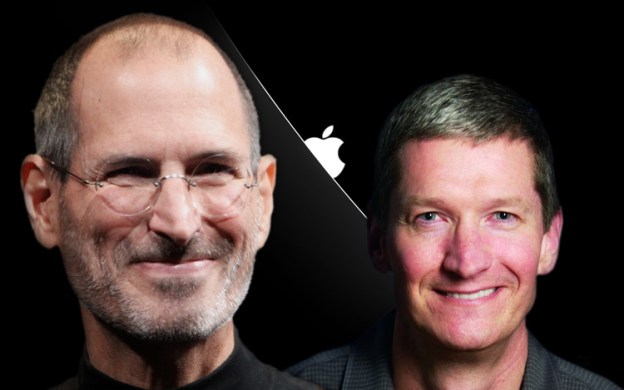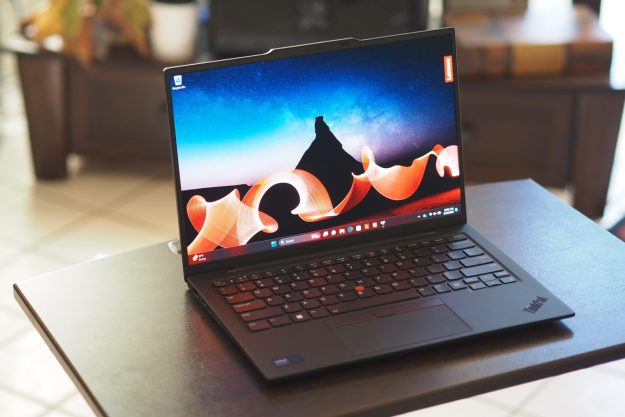
Steve Jobs changed the world once again this week, by stepping down as CEO of Apple Inc. His resignation brings the end of a profound era of consumer technology innovation, one that brought us the personal computer, iPod, iTunes, iPhone and iPad — gadgets that have transformed culture around the globe, how we consume information and the ways in which we interact with one another.
Apple will, of course, go on without Jobs holding the reigns. Incoming CEO Tim Cook has proven himself a talented chief executive for Apple repeatedly, having filled in for Jobs when his health issues took first priority. And besides, Jobs has not left Apple at all; he will remain as chairman of Apple’s board of directors.
So, there’s little doubt, at this point, that Apple will continue to flourish and produce great iThings. But it would be naïve to ignore the incontrovertible fact that Apple is not the same without Jobs leading the way. Here, seven key ways in which the largest technology company in the world could change now that Jobs has stepped aside.
1. Design could deteriorate
Guiding the design at Apple is Senior Vice President of Industrial Design, Johnathan Ive. A powerhouse of visual creativity, Ive is the man credited with the look of everything from the original iMac, to the iPhone and iPad, and most of the iconic devices that fall in between. Ive and his design team will continue to the shape the design at Apple, as they have since 1997. So it’s doubtful much will change in this area.
That said, Steve Jobs, a relentless perfectionist, has always maintained a hands-on role in the look and feel of Apple’s products. For example, Google’s Vic Gundotra just wrote on Google+ about how Jobs once called him, on a Sunday, about an “urgent” matter. The emergency, it turned out, was that Jobs didn’t like the shade of yellow in the Google app icon, and wanted to change it immediately. It’s this kind of staggering attention to detail that may wane with Jobs’ departure. Unfortunately, that same attention to detail is what has made Apple great.
2. Culture of secrecy could dissolve
Notoriously secretive, Jobs has built a walled garden around Apple, its culture and its employees. Journalists and media organizations who published things Jobs didn’t like were shunned, cut off of valuable access to the company and its leadership. And we all know how closely the company guards its upcoming products. It’s possible — but not likely — that Apple’s tight-lipped policies could loosen under the leadership of Tim Cook. Considering Cook has so far maintained this culture of secrecy throughout his nine-month tenure as acting CEO, however, we have a feeling Jobs’ mafia-esque policy of keeping all of Apple’s cards close to the chest will stick around for the foreseeable future.
3. Steve Jobs’ power could increase
The only thing that has remotely stood in the way of Steve Jobs’ all-powerful will is Apple’s Board of Directors. Not that they often tried to stifle his leadership or squash his creative dreams (aside from that time that they fired him, of course), but he did have to answer to their demands. Now, however, Jobs is the chairman of Apple’s board, which means he is still able to call the shots, even if he’s not doing so on a day-to-day basis. Remember, Jobs has explicitly indicated that he will maintain an active role in the development of new products at Apple. And that means shutting down any ideas that he thinks are less than magical.

Still, we must acknowledge that Jobs’ resignation as CEO means that he is transitioning out of the company. And it’s entirely possible that his questionable health status will limit him more than we know, so far. But as long as he’s Chairman of the Board, Jobs will remain the wizard of Apple’s Oz.
4. Apple’s corporate culture could transform
Everybody wants to work at Apple. Or, at least, they did before Jobs resigned. His leadership has served as a magnetic force for the company, not just in terms of creating fanatic customers, but as tool for recruiting talented new employees. Of course, Apple is still Apple. It’s still the most valuable technology company in the world, and its products will likely continue to shape the entire consumer technology industry for ages to come. And because of this, gifted workers will continue to find a home at Apple. But it seems foolish to assume that Apple without Jobs has the same draw as Apple did with Jobs in the driver’s seat.
As for Apple’s current workforce, it’s possible that not much will change. After all, they have been working under Cook’s leadership for the past nine months, and will likely be more determined than ever to keep their company great. Still, knowing that Jobs will likely never walk by their office ever again is sure to alter an Apple employee’s psyche, at least a little.
5. Apple’s stock could become more volatile
As soon as Jobs announced his departure, Apple’s stock price dipped five percent — not a plummet, but a respectful acknowledgement from the market of the integral role Jobs played in Apple’s massive success. Now, as long as Apple continues to produce beautiful products that people wait in absurdly long lines to get their hands on, then Apple’s value as a publicly traded company will only go up. If, however, Apple releases even one major dud, the price of its stock could potentially drop out the bottom, or trigger a decline.
Fortunately for stockholders, analysts predict a bright future for Apple’s profitability, at least for the next few years. But according to some investment experts, Apple’s long-term future holds uncertainty.

“Looking forward, we believe risk is more likely to be centered around Apple’s 3-5+ year product plans if/when Jobs permanently departs,” wrote Deutsche Bank, in a memo to investors, following Jobs’ departure.
In other words, investors believe Apple has a long-term plan for domination that could carry the company through the next three to five years. But if Jobs leaves the company entirely, then everything is up in the air.
6. Jobs may never deliver another keynote
For Apple outsiders, the most obvious change caused by Jobs’ resignation may be that he will no longer deliver his much-anticipated keynote addresses. In the lead-up to any Apple event, fanboys and fangirls would often get themselves into a tizzy speculating whether or not it would be Jobs making the “magical” announcement, or just some underling. The appearance of Jobs always thrilled the crowd, especially in recent years, when it was unknown whether his health would allow him to show. And when he did, it only added to the seeming profundity of the new product.
Of course, Jobs is still Chairman. And we could very well see him on stage this fall when Apple is expected to unveil the iPhone 5. But if Jobs isn’t in a position to show up to the office, then it’s unlikely that he will have what it takes to go through the demanding task of an Apple keynote address.
7. Nothing will change, whatsoever
It’s entirely possible that nothing will change at Apple, in the slightest. Jobs has been largely absent from the company for the past year. Tim Cook has served as Apple’s CEO on three occasions, in 2004, 2009 and this year. And he has run Apple’s day-to-day operations since 2007. In other words, the Jobs era has been waning for some time, even if we weren’t acknowledging it. And Cook has had ample opportunity to establish himself as the company’s leader. Perhaps we’re all making much ado about nothing in questioning the future of Apple without Jobs at the helm.
It’s possible, yes. But our gut tells us that is an unlikely scenario. Nobody — not us, you, Tim Cook, Steve Jobs or any analyst in the world, knows what’s about to happen next with Apple. We can assure you, however, that we’ll all be there, keeping a close watch for any hints of change, for better or worse.
Editors' Recommendations
- Steve Jobs’ handwritten Apple-1 ad fetches big bucks at auction
- Steve Jobs’ legacy lives on with the highest civilian honor in the U.S.
- Steve Jobs’ 1973 job application is now in an unusual auction


